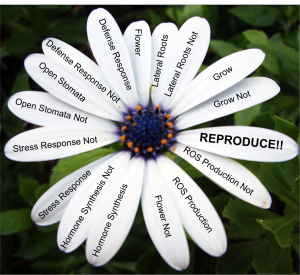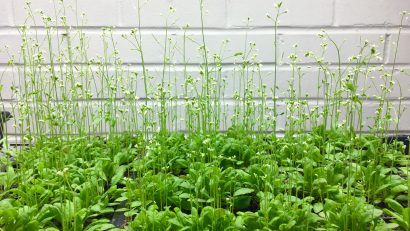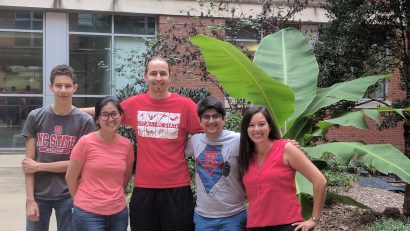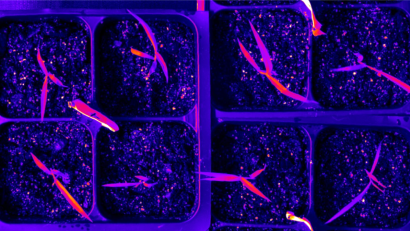The Doherty Lab seeks to understand how plants integrate signals from the environment when making decisions. We focus on how plants integrate time into the molecular and biochemical responses to abiotic stress. We are also interested in capturing the amazing biochemical capacity of plants for technological solutions to the challenges of climate change.
Abiotic stresses prevent crops from attaining optimal yields and cause significant variability in food production. Understanding how plants perceive and respond to these stressors can improve yield stability. Our goal is to improve plant yield in response to stress, reducing variability between seasons. We are interested in understanding how plants measure and track time to coordinate their activities.
- How do time cues affect responses to abiotic stresses such as drought, salinity, and heat?
- How do plants keep track of time?
- How do temperature cues feedback into the plant circadian clock?
We study the intersection between the circadian clock and stress responses with a focus on monocot systems. We are investigating the effects of High Nighttime Temperature; Using the variation in response due to time allows us to dissect stress response networks.
We employ biochemistry, molecular biology, network analysis, and statistical learning to identify the molecular signaling networks and changes in these networks that orchestrate adaptive stress responses in plants.
Interested in research in this area? Join Us!
Header image copyright: IRRI




